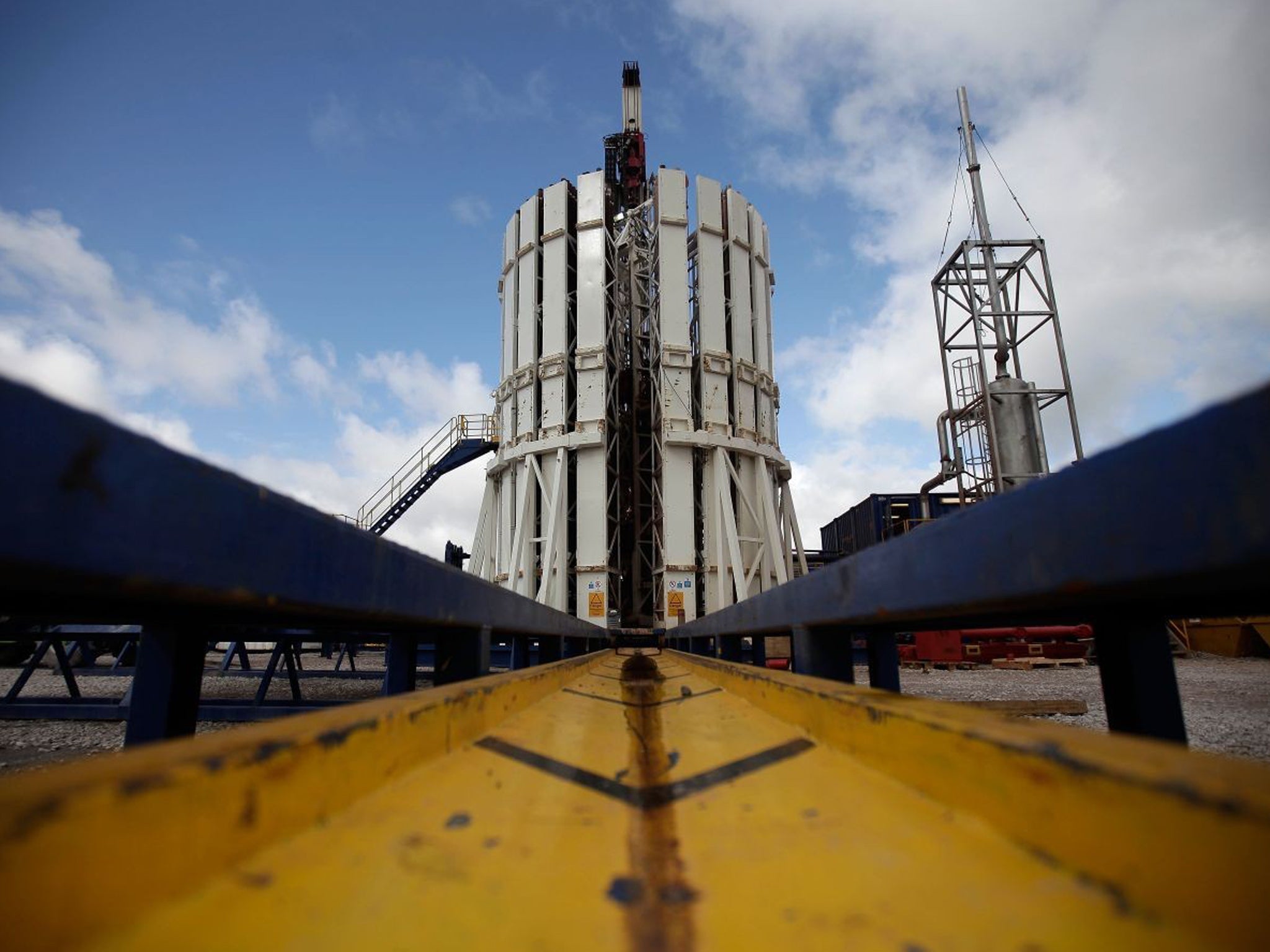Get fracking: MPs back the dash for UK’s shale gas
Go-ahead given as Ofgen report warns that risk of energy blackouts has tripled in past year

Britain is to “get serious” and embark upon a dash for shale gas, ministers announced, as a new report warned that the risk of future energy blackouts had tripled in the past year.
Unveiling Britain’s energy strategy for the next decade, the Climate Change Secretary, Ed Davey, outlined new incentives for investors to replace Britain’s ageing coal, oil and nuclear power stations with new renewable and gas generators.
At the same time he gave the go-ahead for a new drive for shale gas exploration as a geological data released today suggested that British resources of the gas are much higher than previously thought. If only 10 per cent of the 1,300 trillion cubic feet that the British Geological Society (BGS) believe lies under the North of England could be extracted it would be enough to supply the country with gas for 25 years.
The pressing necessity for the new investment in power supplies was underlined by a new report from the energy regulator Ofgem. It warned the UK could have just 2 per cent of spare electricity generating capacity by 2016 and said its findings “illustrated the need for the timely implementation” of the new strategy.
“The risk to electricity supplies is projected to increase from the current near zero levels, although Ofgem does not consider disruption to supplies is imminent or likely, providing the industry manages the problem effectively,” it concluded.
The regulator said it has been working with the Department of Energy & Climate Change and the National Grid to explore options that would provide consumers with additional safeguards against the increased risk to mid-decade security of supply.
The announcements on energy were an attempt by the Coalition to merge the Conservatives enthusiasm with shale gas with the Liberal Democrats’ desire to move to new renewable forms of energy generation.
Mr Davey announced the long awaited price subsidy that investors can expect if they invest in new wind, solar and biomass generation. He said he believed the move could unlock private sector investment of £110bn and create 250,000 new jobs.
At the same time, his Conservative colleague Michael Fallon announced new support for shale gas – promising tax breaks for exploration, simpler planning rules and new incentives for communities to back “fracking” wells in their areas.
Under the plans drawn up with the industry, communities will receive at least £100,000 for each well where fracking takes place to explore for shale gas and 1 per cent of revenues if the drilling proves to be commercially viable.
Ministers believe the experience of the US, where shale gas has been widely exploited, shows that it could boost tax revenues, create jobs, reduce energy imports – which have reached record highs – and bring down household fuel bills.
But opponents warn that fracking - hydraulic fracturing rock with high-pressure liquid to release the gas – can cause earthquakes, blight the countryside and affect house prices.
Friends of the Earth energy campaigner Tony Bosworth said: “Shale gas is not the solution to the UK’s energy challenges. Its potential has been hugely over-hyped and there’s little evidence it will drive down fuel prices.”
The main focus for shale in the UK is in Lancashire, and new estimates from the BGS suggest there is as much as 1,300 trillion cubic feet in the Bowland shale, an area stretching from the northern Wales-England border to the North York Moors.
The figure for the area, which covers 11 counties in the north of England, is twice what was previously estimated but it is not known how much of the resource can be extracted.
Join our commenting forum
Join thought-provoking conversations, follow other Independent readers and see their replies
Comments
Bookmark popover
Removed from bookmarks